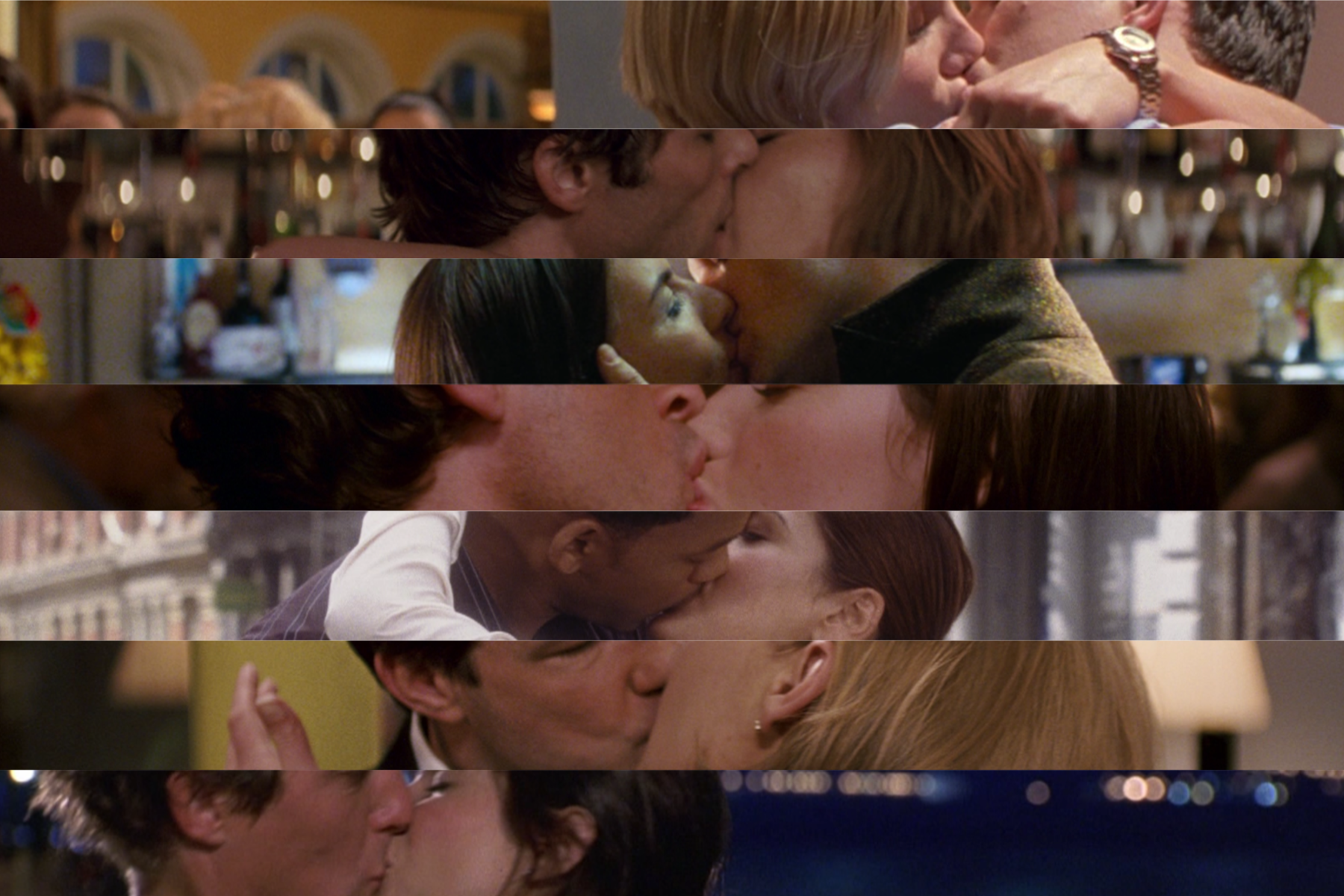
Romantic Comedy director Elizabeth Sankey spoke with Solzy at the Movies ahead of the film’s North American premiere at the SXSW Film Festival.

Congrats on Romantic Comedy being selected for the 2019 SXSW Film Festival! How thrilled are you for the opportunity to show the film in Austin?
Elizabeth Sankey: I am so thrilled! It’s a dream come true. Never, ever thought it would actually happen.
You grew up watching romantic comedies. Do you have a particular favorite?
Elizabeth Sankey: It’s a boring answer, but I think When Harry Met Sally is the pinnacle of the genre. But I also really like Grosse Pointe Blank, Just Right, Ruby Sparks, In & Out, and Runaway Bride.
Your documentary breaks down all the typical beats of a rom-com. Is there any particular beat that you feel has become so overdone in movies that it isn’t even funny?
Elizabeth Sankey: I wouldn’t say it’s a beat, exactly, but romantic comedies often portray the woman as clumsy. I think this happened because it was a shorthand way of creating a character who needed love and was vulnerable, but hadn’t realised it yet – which is something romantic comedies have always done. But I don’t think tripping over chairs is something a lot of women experience, and I don’t think it has any connection to their success at romance. I remember when I watched The Post, Meryl Streep’s character – the incredibly successful Katharine Graham – trips over a chair on her way into a meeting. Apparently that was unplanned but Meryl did it on a take by accident and Spielberg then told her to do it on every take because he thought it was a great visual metaphor for her characters’ insecurity. In reality I think most women over prepare when they’re insecure, and try to be as capable and as in control as possible. It just doesn’t ring true for me and I don’t find it funny.
In putting this film together and studying the genre, what’s the most fascinating thing that you saw in how women are portrayed?
Elizabeth Sankey: I think the real “wow” moment for me was that on Marilyn Monroe’s last film she had planned to do a nude scene – she was going to swim naked in a pool to try and entice her husband back into her arms. This would have been groundbreaking and I think potentially could have changed the world of romantic comedies – and their relationship to sex – in an indelible way. But the film was never finished and instead re-made a year later with Doris Day who was not someone who was keen for romantic comedies to contain sex or female characters with sexual agency. And they’ve never really changed since then. It’s bizarre that even in 2019 romantic comedies so rarely have the two leads having sex – most of them end with heady declarations of love before they’ve even kissed! I do wonder if this has influenced the way women are encouraged in society to prioritize love and romance, with their sexual desire being something they’re not “supposed” to be concerned with.
Seeing “The Penis Song” in full from The Sweetest Thing was an absolute delight. What factored into placing the song in the film?
Elizabeth Sankey: I have a lot of time for The Sweetest Thing, as it was written by a woman (Nancy Pimental) and I think that moment in particular was her response to the way that in portrayals of sex in mainstream cinema women are often encouraged to be objects who are there to fulfill male desire, and told not to worry about their own desire. It’s so bizarre, subversive and fun. I love it.
I love that you mentioned how there are so few rom-coms with trans people, disabled people, or non-white people in the leading roles. Do you find that this is because of so many people with the power to greenlight such projects are white men?
Elizabeth Sankey: As someone who has never worked in the industry, I have no idea why there’s such slow movement on representation in films. And to be fair, it’s not just romantic comedies where we see this problem, it’s everywhere, in every industry. I don’t want to point the finger at white men, as in my experience most of them are wonderful and are equally as frustrated by the staggering lack of diversity in the things we watch/listen to. I think it’s about money and fear of failing – but then that’s crazy because two of the most successful romantic comedies of the last five years – Crazy Rich Asians and The Big Sick – have POC in the leads. As a fan I can say that it’s very frustrating. People say romantic comedies are coming back, but what we’re actually seeing is films that find a way to twist the rom com formula in a way they hope is fresh (e.g. Isn’t It Romantic or Set It Up) but actually I’d really love to just watch a classic rom com with relatable characters and no meta elements or quirky premises (e.g When Harry Met Sally) where one of the leads just happens to be a trans woman.
I love that you mentioned watching a classic rom-com but with a trans woman in a leading role. I took classes at Second City and when I’m not covering film, I’m working on my own trans-led indie comedy screenplay. The thing that I’ve noticed over the years and I hope starts to change is that trans leads tend to be a harder sell for the studios and even indie distributors to an extent. I think it goes back to who is making the decisions.
It’s so frustrating. Especially as I think the majority of audiences would heartily support films that encourage diversity and new stories and performances from new talents. Just look at Moonlight, Black Panther and of course Crazy Rich Asians and The Big Sick. Audiences are hungry for it and outspoken in their desire to see different types of representation. I think there is this belief that “a good actor can play anyone” which is true, but also are they even letting trans actors audition? I want to see trans stories. And I don’t want cis actors to win Oscars for being “brave” enough to play trans, I want to see a great actor on my screen, oh and they happen to be trans.
Affirmative action needs to happen here, especially with the awful way trans people are being treated around the world. If we don’t see people from different backgrounds and worlds and lives in our popular culture, then studies have shown that many people can find it harder to relate to them.
I really hope you make your film! It’s so important!
One of the things I found the most fascinating in watching the film was how it puts some of these problematic men in a new perspective in light of the Me, Too movement. Which of these characters are more troubling today than when first released?
Elizabeth Sankey: I talk about it in the film but I think the character of Tom in 500 Days of Summer hasn’t aged well. And I think I am safe to say this as Mr. Gordon-Levitt himself has commented on it. Tom displays a lot of troubling behaviours, but it’s also the way the female character is portrayed – as this perfect, flawless, indie doll – and how he responds to the fact she’s not keen to have a boyfriend. I remember at the time that film came out a lot of men I knew really loved it and related to it, and now, thank god, we all realize he’s not that great.



